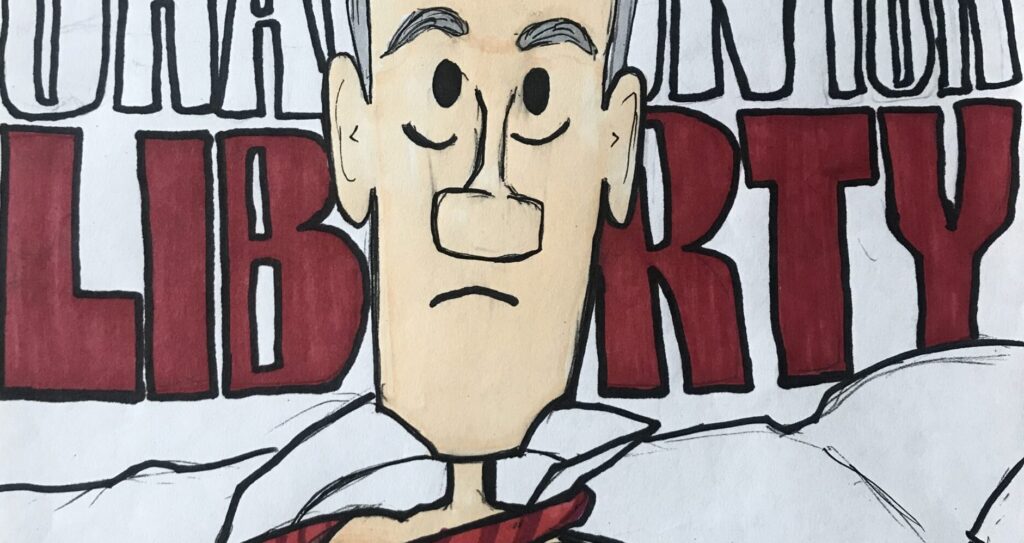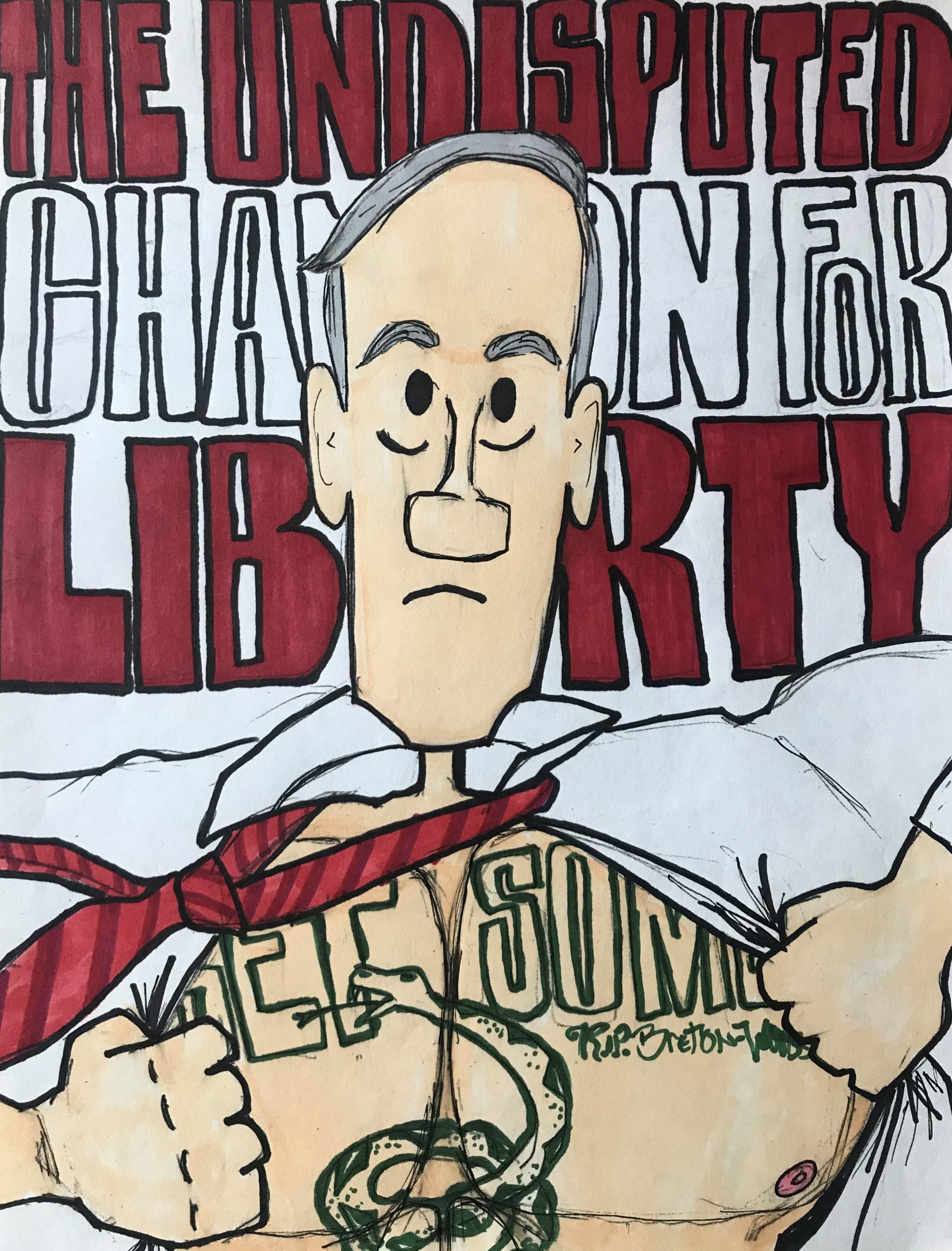
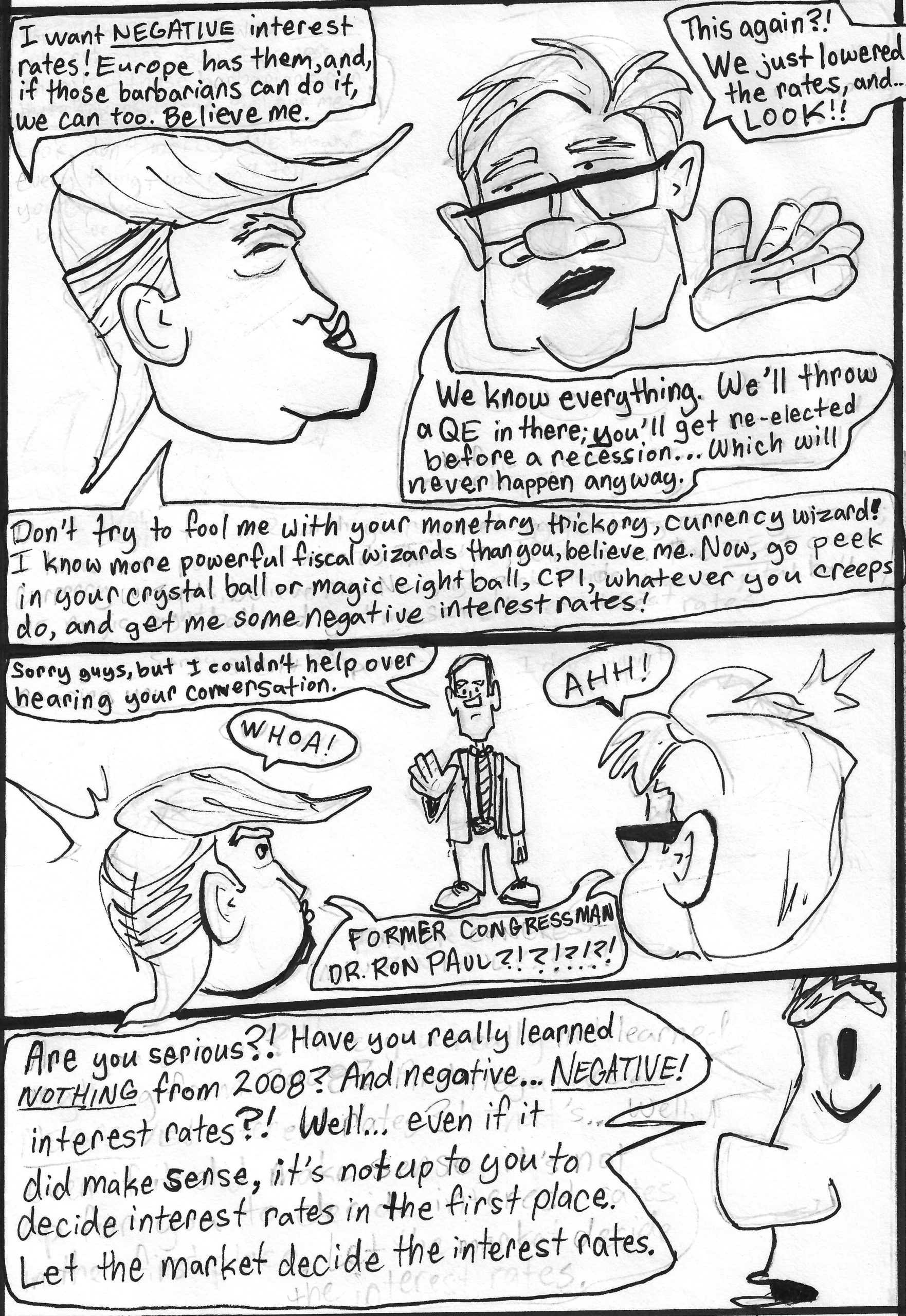
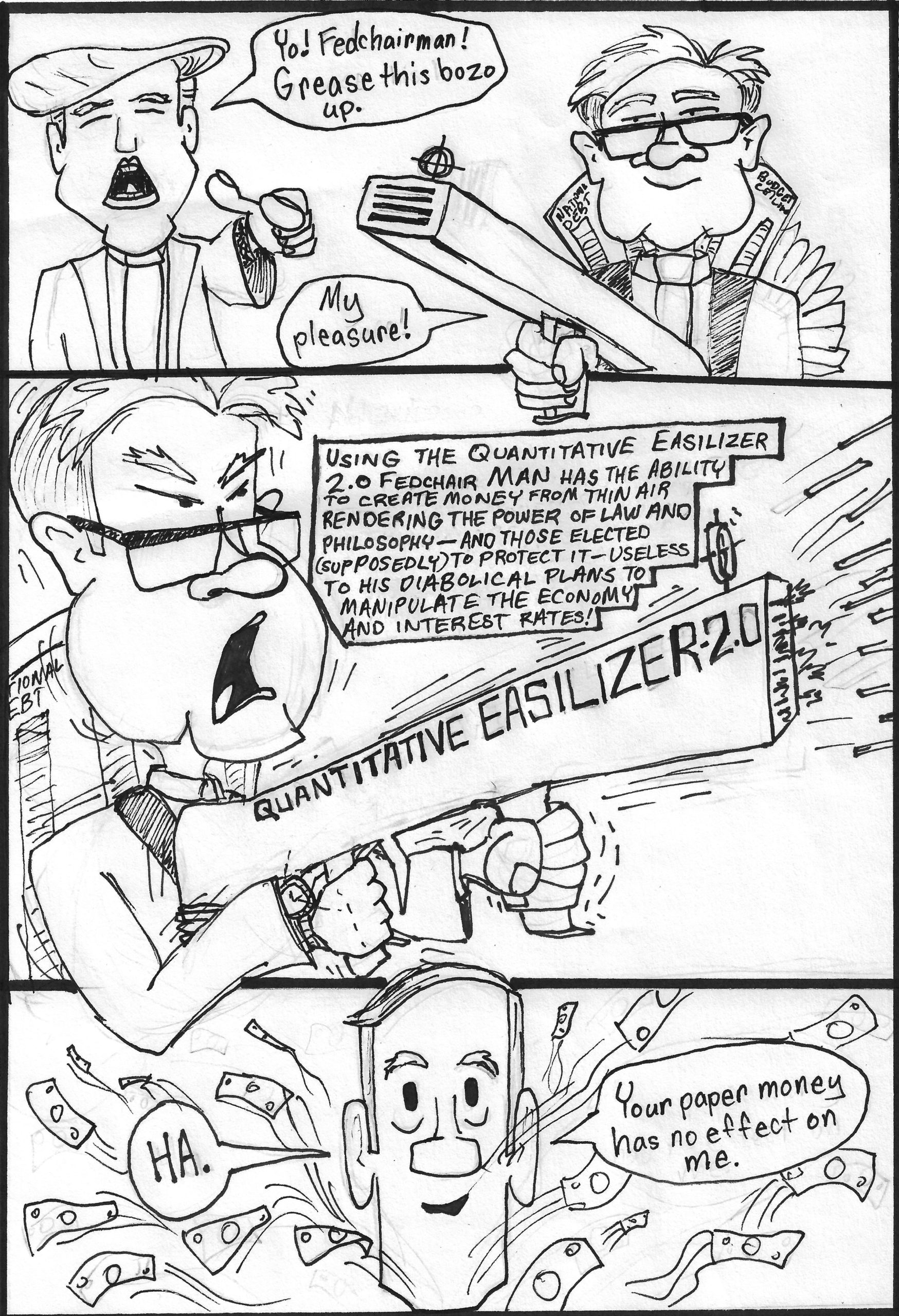
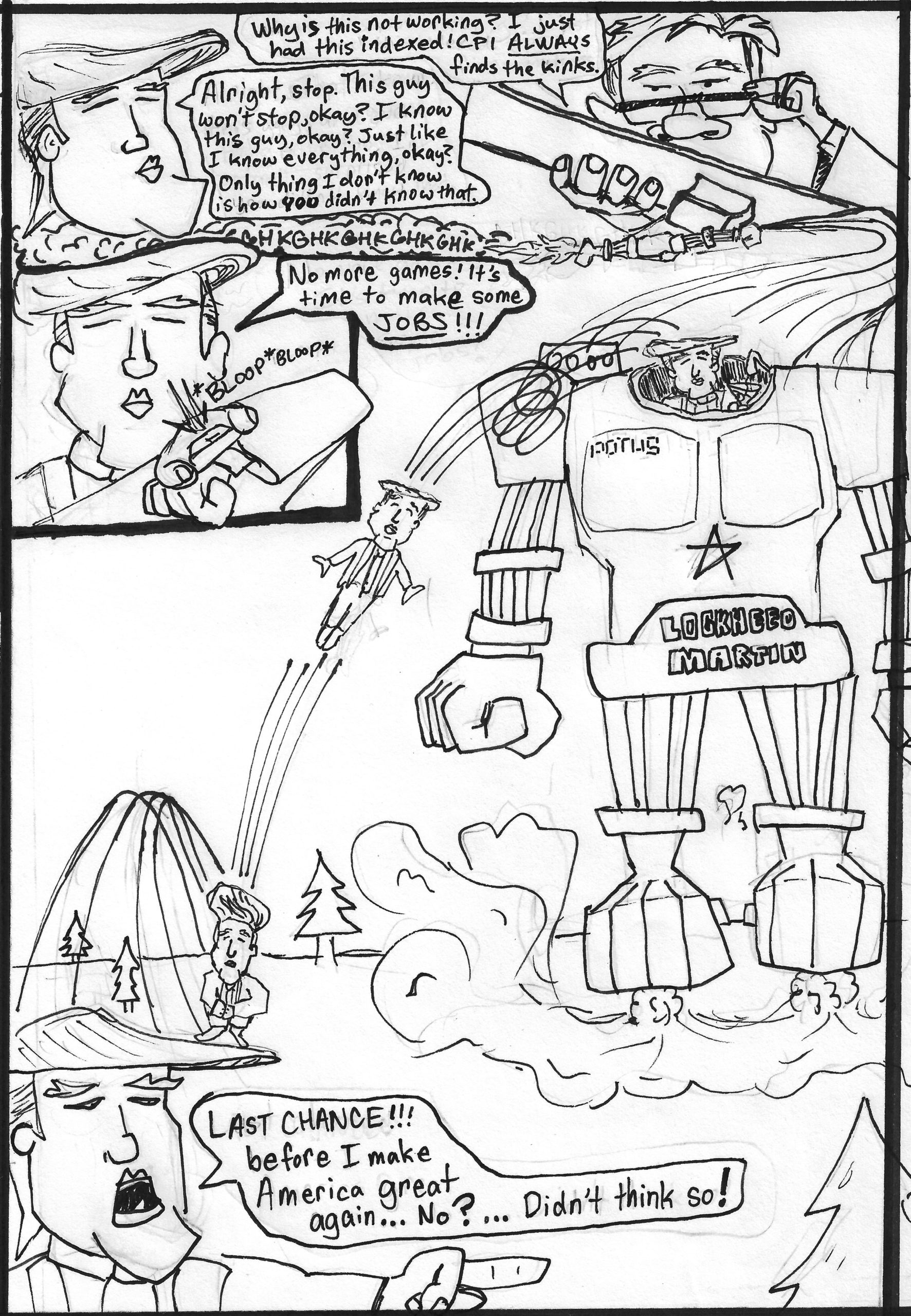
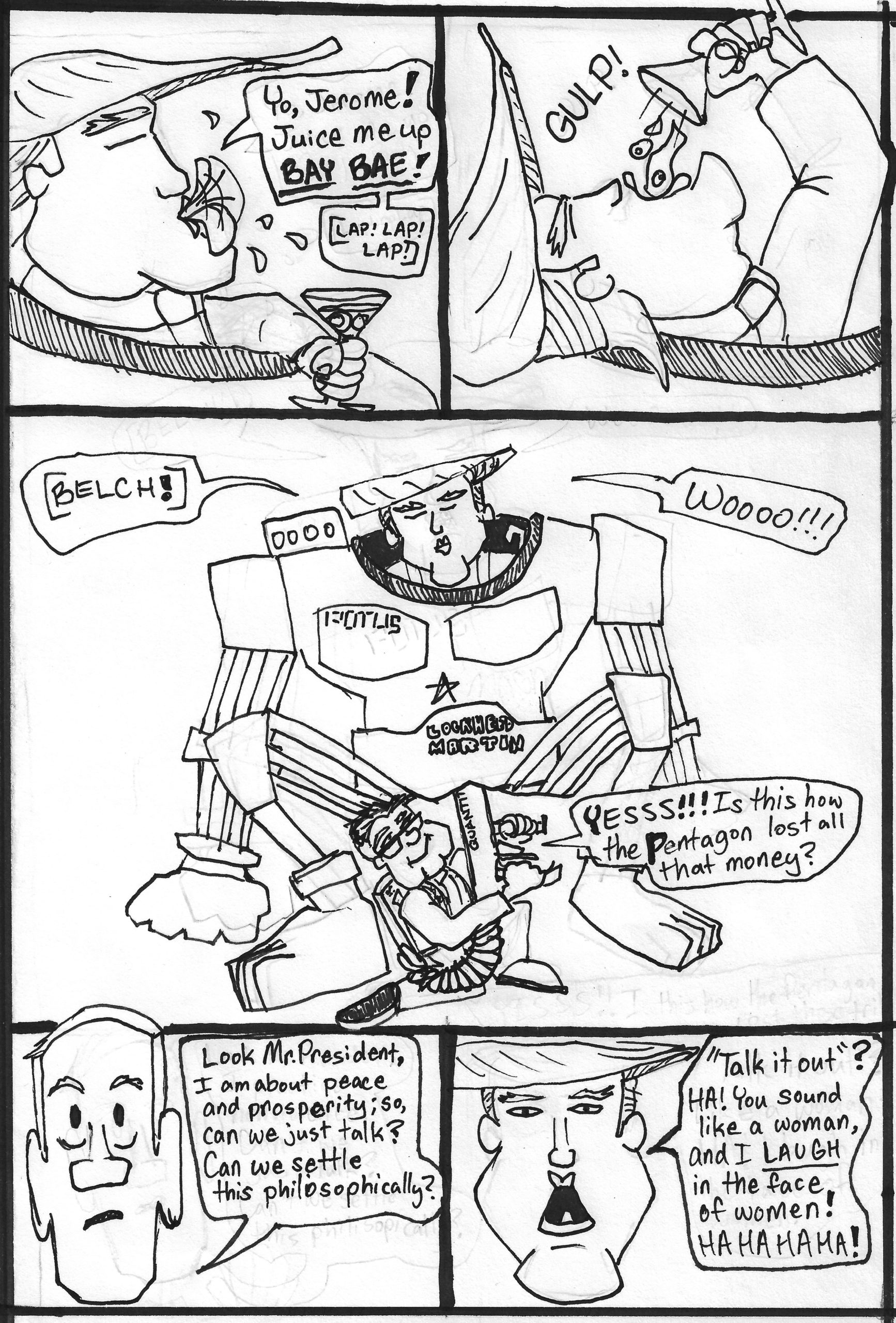
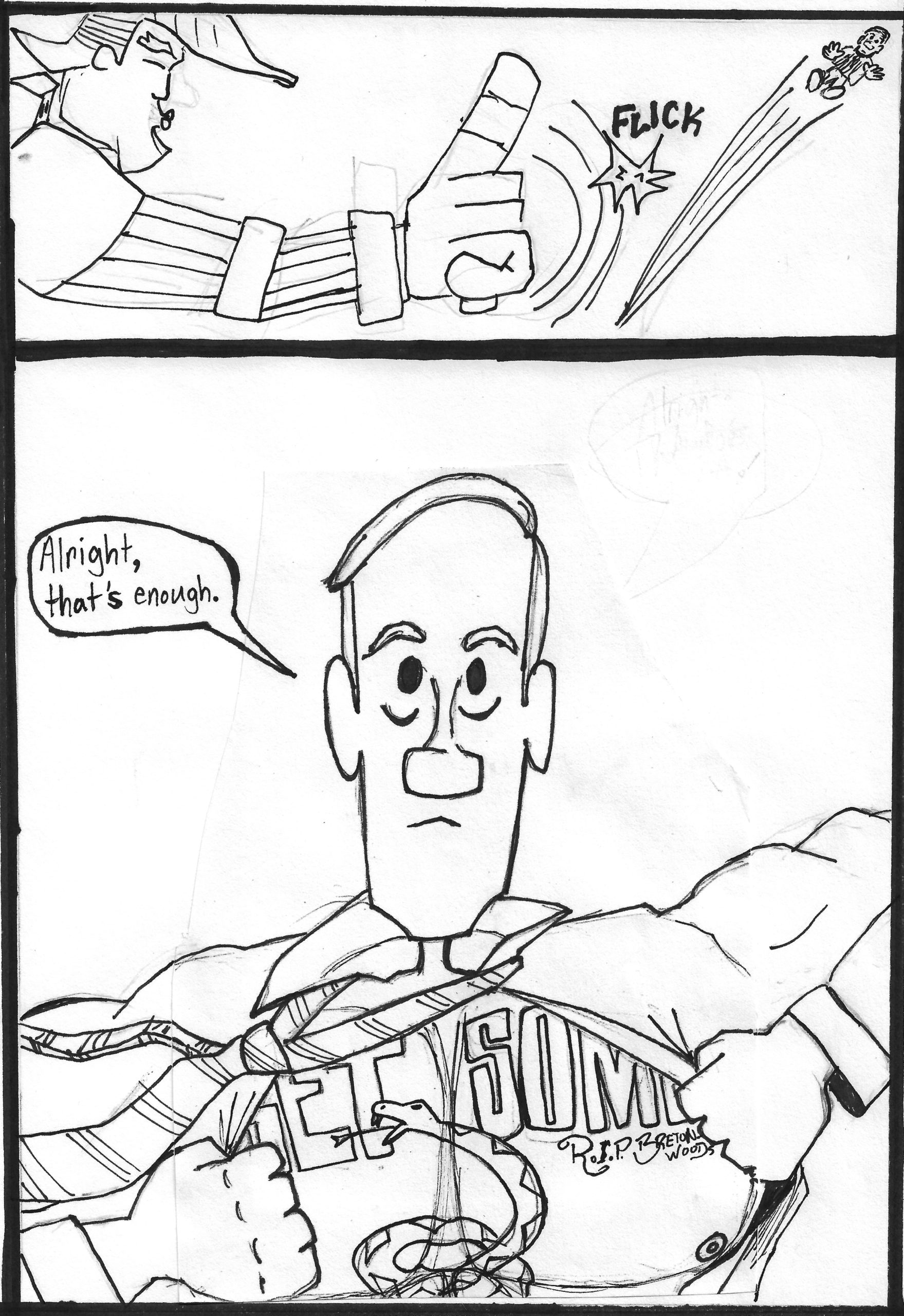
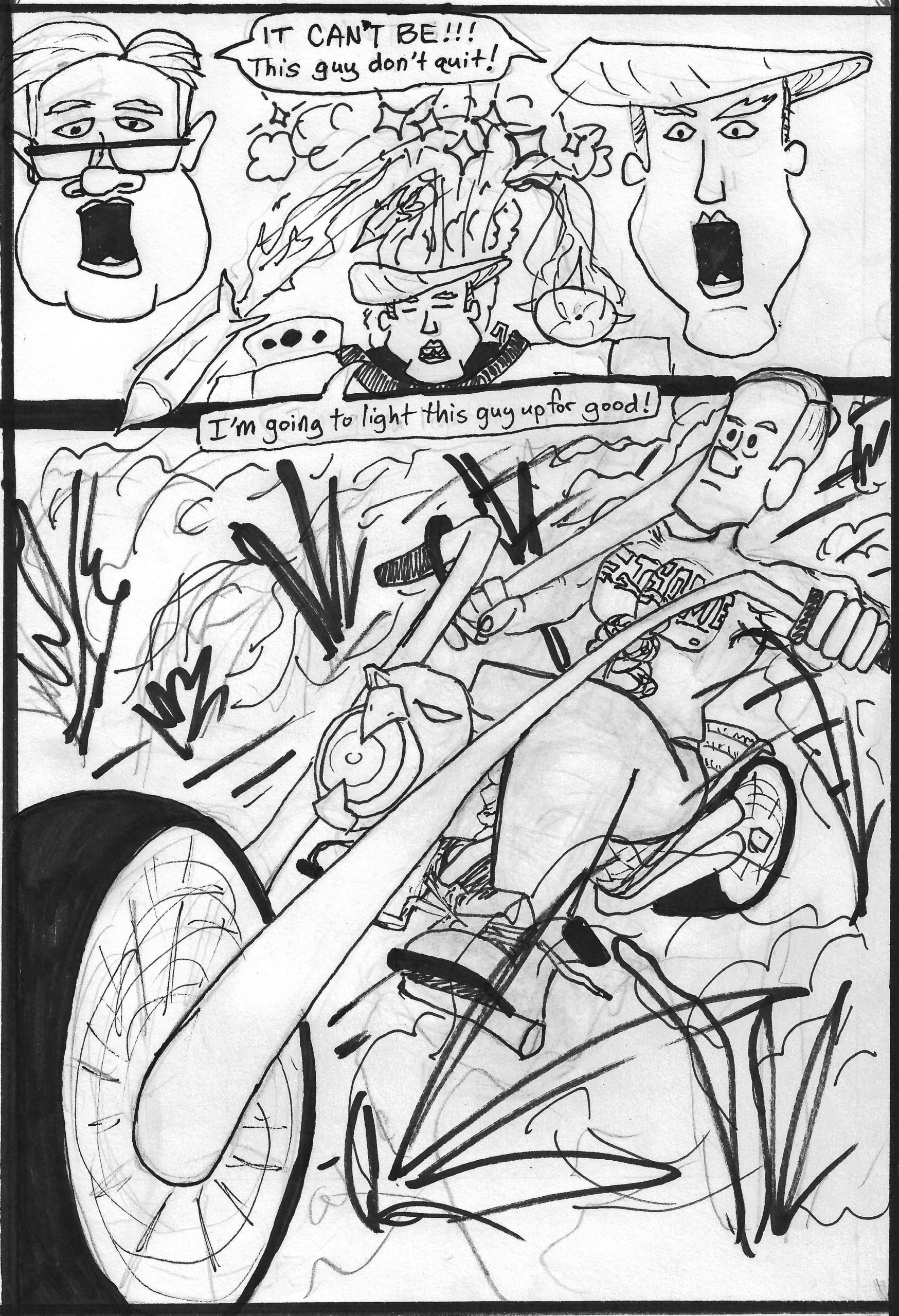
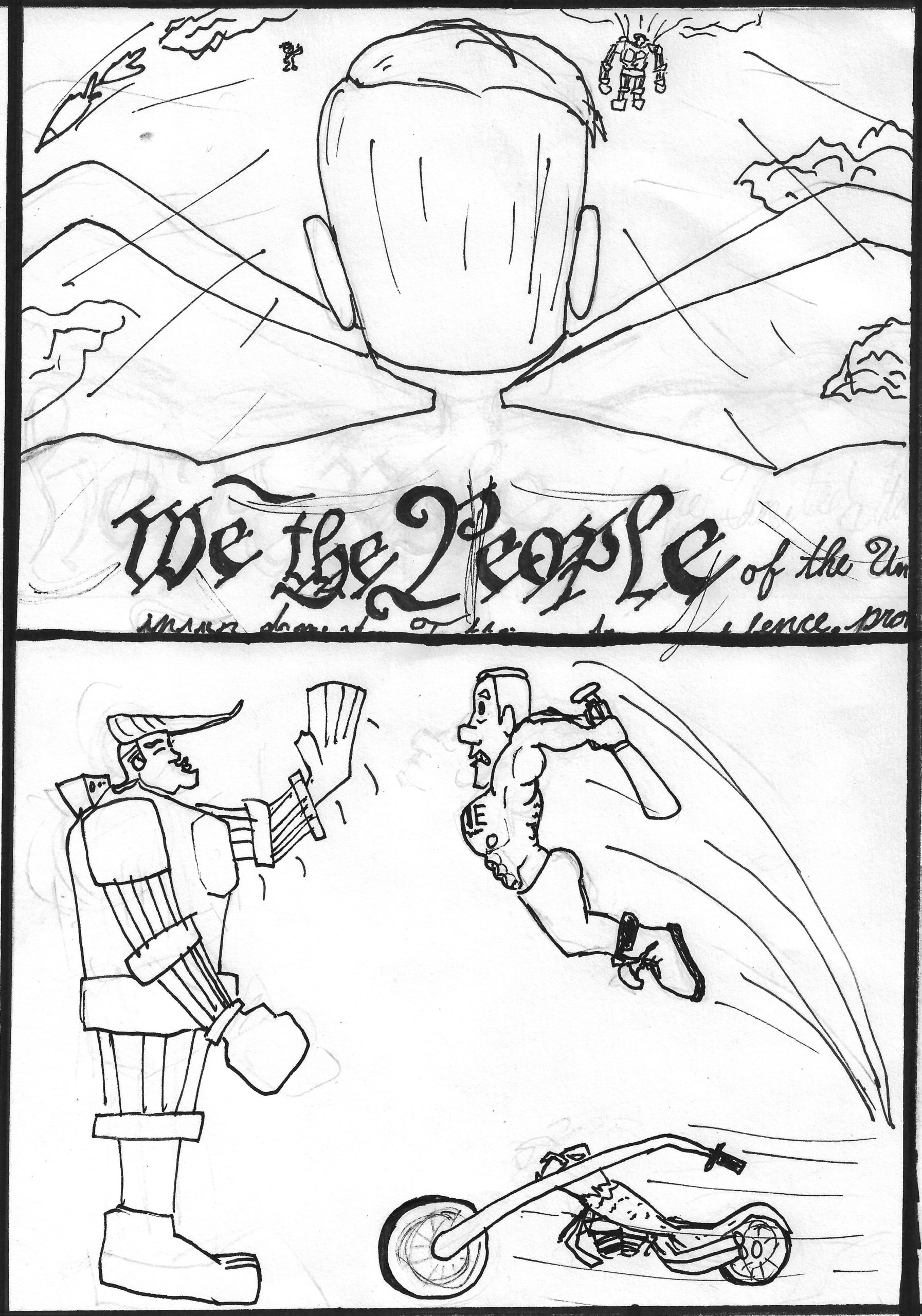
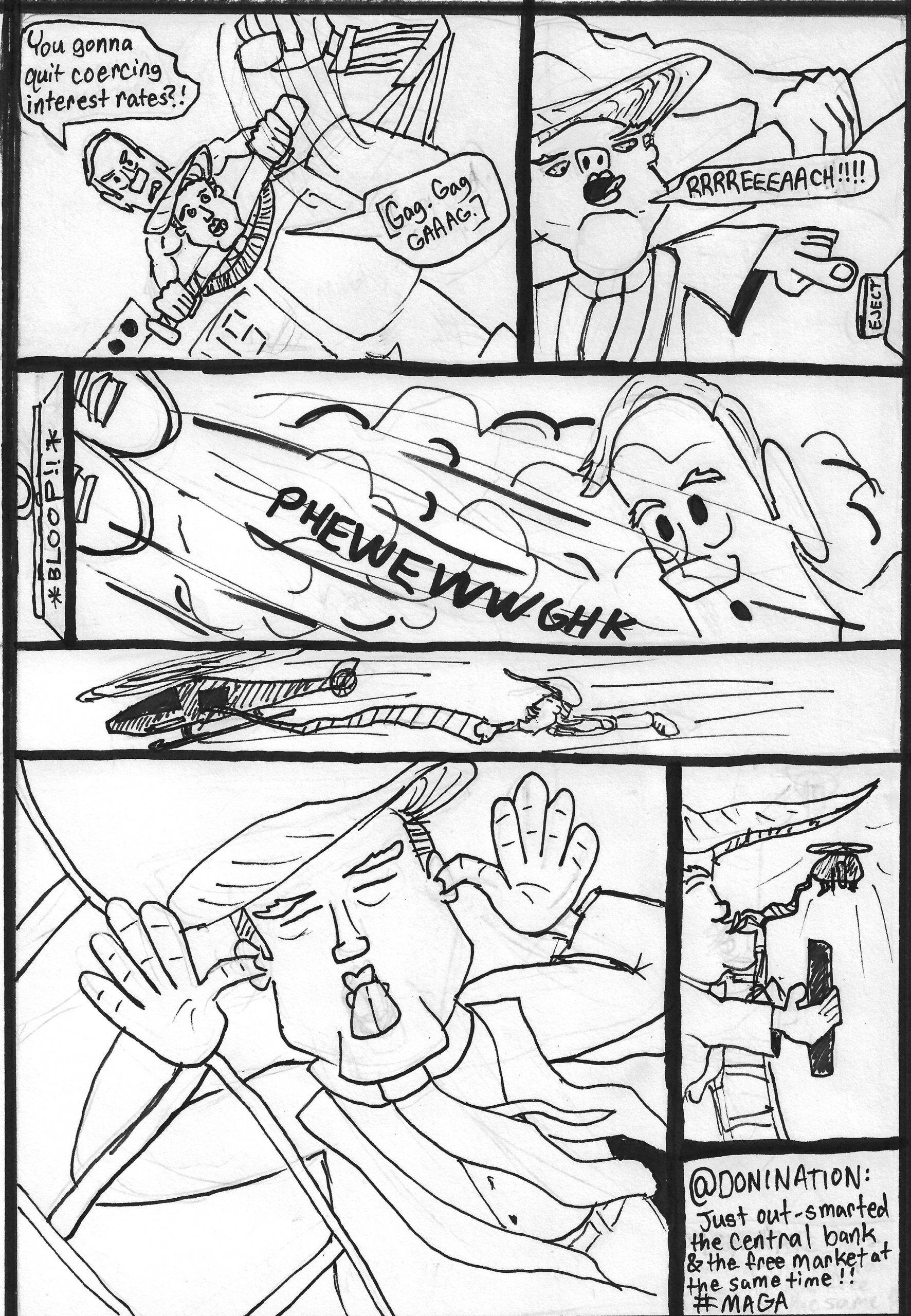
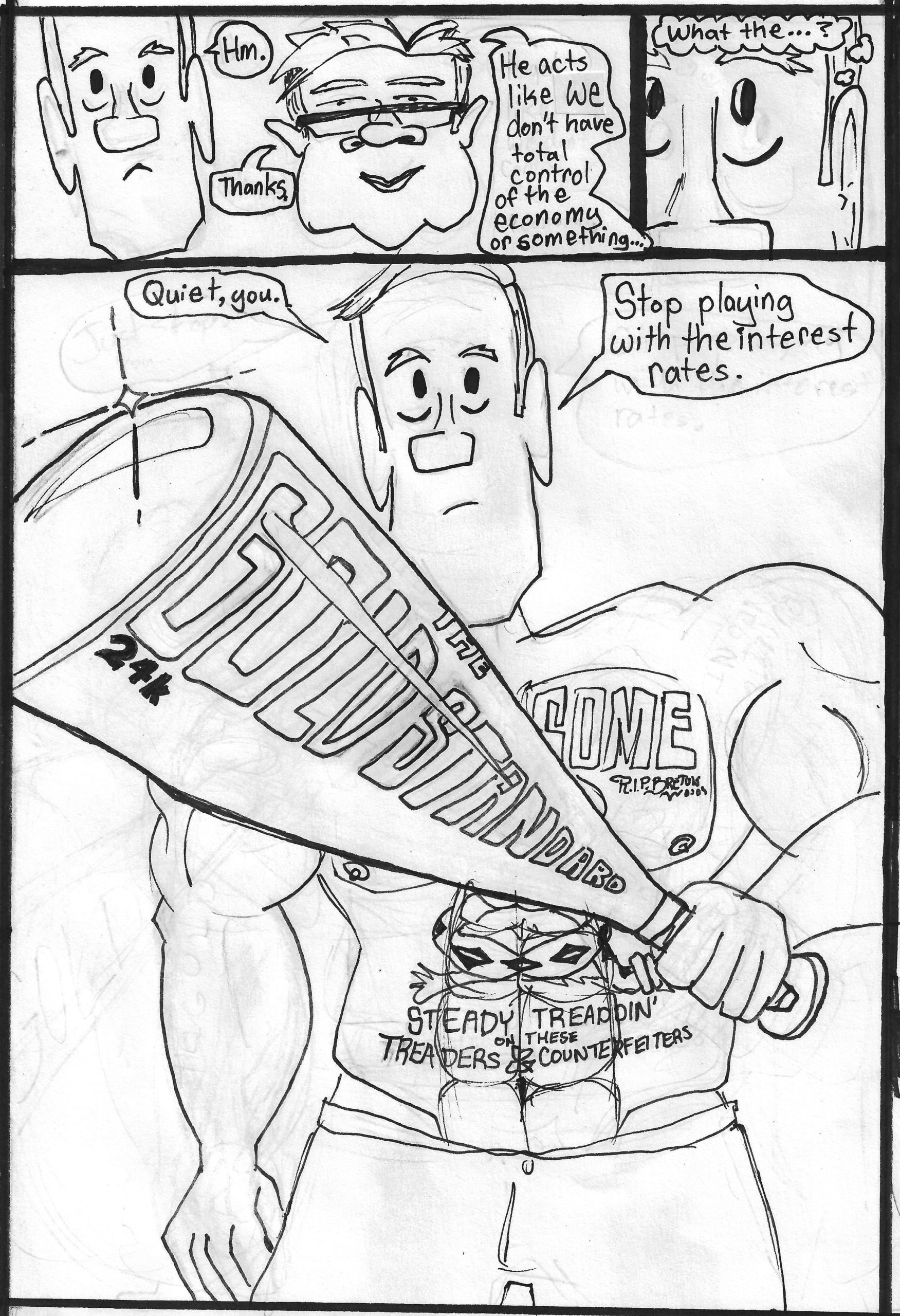
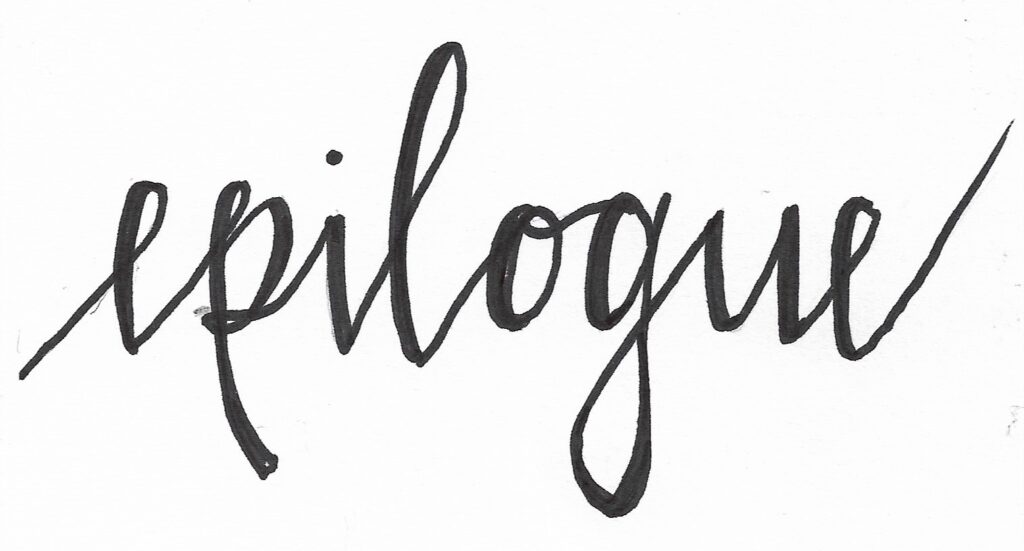
For those of you familiar with the epilogues, I am hoping to make this first epilogue more straight forward as the plot is based on unconventional viewpoints, and, while this is the third or fourth epilogue made, it is the reason I started them: the majority of people who read issue 1 did not understand the content. While it is made to enjoy the mere aesthetics of the story, the goal was, and is, to intrigue those unfamiliar with libertarian philosophy and promote it. So, while some of the other epilogues are designed to entertain with soliloquies and literary devices, there will be those where I feel the understanding of the content is more important, and, for said stories, the epilogues will consist of commentary in a play-by-play of the situations within the story.
The story starts out with Donald Trump petitioning Fedchair Man, Jerome Powell, for “Negative Interest Rates”; hence, the title of the first issue. Negative Interest Rates are essentially the lowering of interest rates past 0%, and is used by countries with a central bank in an attempt to stimulate economic growth. It is basically another way to inflate the supply of money. Trump was advocating for this policy publicly at one point, and it has been the subject of debate more recently. This is when Dr. Ron Paul did an episode around this time, and, not unlike the comic, he tries to make sense of the banking tactic. Now, there are a lot of problems associated with this policy, but, of course, Dr. Paul digresses to his principles: banking policies and interest rates should be made by the individual bank. Thus, he does not take a position on the policies per se, but, instead, that government/central banks should not be involved with economic matters.
This is when Trump tells Fredchair Man to hit him with his “Quantitative Easilizer” a device that makes money from thin air. This weapon is a symbol alluding to the policy of “Quantitative Easing” is essentially when the banks introduce more money into the economy and artificially (meaning people did not start assessing these goods/services for or at a higher value or increased scarcity) raises prices. Regardless of this process, the deeper meaning here is corruption of politicians via financial gains. However, this is not about the personal gains from their political contributors, but rather the opportunity for more government spending. They are connected indirectly, for instance, Lockheed Martin (a military arms dealer—more on that later) contributes financially to political races and lobbies (articulates their political position) in the hopes that the elected official will represent them in the need for their goods/services to the public. Politicians rarely turn this down. The so-called conservatives complain about debt and spending to their constituents, but never turn down a chance to increase budget and spending. Reagan, Bush, and Trump, all enjoyed “conservative” majority congress, and they all raised the budget. The temptation is simply too great; however, Dr. Paul doesn’t play that. He laughs and says, “your paper money has no effect on me,” which is an allusion to his belief in “sound money” that is money backed by a valuable resource, as opposed to “fiat money” where the value of money is simply a decree of the government. This is why the paper money has no effect on him because it is made from “thin air.”
Befuddled that his powerful weapon has no effect on his opponent, he starts examining the weapon for problems and states he “just had it CPI-ed.” CPI stands for “Consumer Price Index” which is a standardized assessment tool which is used to identify failing aspects of the economy and figure out ways to artificially support that market. Or, if you prefer a less cynical perspective, it monitors the inflation rates, which influences public welfare policies. Trump understands this is not a mechanical malfunction all and calls for the Lockheed Martin war robot.
Trump exclaims “it’s time to make some jobs,” a frequent (second only to the “we need to protect our freedom” propaganda) excuse utilized by politicians to support and sustain the military industrial complex. Fedchair Man fuels the Lockheed Martin machine (the fuel is money), which is designed to be an antagonist to Trump’s fragile machismo, but also signifies the money being spent is a “waste” as the rectum is where the human body’s waste is delivered from. The Pentagon, yes, really lost trillions of dollars (or it is at least unaccounted for), but also implies it was flushed down the toilet. Dr. Paul is for peace and prosperity, nonaggression, and voluntarism, and pleads with the president to participate in a discussion as opposed to aggressive action. Of course, the misogynist Trump attributes nonaggressive resolutions as womanly and thus denounces them.
Dr. Paul is flicked across the countryside, where it is discovered that, even given his aversion to violence, is only against initiating violence but supports self-defense, and he’s had enough! He rips off his shirt in a manner reminiscent of the Super Man trope and becomes: The Undisputed Champion for Liberty! (Yes, it was extremely difficult to find a picture of Dr. Paul with his shirt off as reference, but I did it.) The villains see him rattin’ towards them on his bald eagle chopper and fire missiles at him, which he easily maneuvers through. UCL, knowing he is more powerful than his opponents, approaches it like the submission game “Say Uncle” children play. Of course, Trump made a daring escape and proceeded to taunt our hero and then sends out a tweet.
UCL is relatively unaffected by the escape, or anything caused by the course of events, feeling he has stated his opinion philosophically. When the Fedchair Man attempts to buddy-up with our hero and implies Trump is overly worried about the economy because the Fed has total control over the economy and can successfully maneuver through any catastrophic event the economy may experience, UCL becomes angry, and he turns and points his ball bat at Fedchair Man, where it is revealed the bat is solid gold and has its name etched on it “The Gold Standard.” The gold standard is something Dr. Paul advocates for often, and it is a philosophy that entails gold should be utilized as money. Dr. Paul advocates this for a few reasons: 1) this is the way it is written in the U.S. constitution (gold and silver are the only forms of money), 2) it was the material that was chosen by the market (that is, free and unhampered individuals) in the past, and 3) it’s unique durability. His weapon, too, is designed to reflect what he is fighting, which is fiat money.
Extra extricated extrapolation: The tattoo is the rattle snake that appears on the Gadsden flag, a popular flag during the American Revolution, one of America’s earliest flags, and (on the flag) the words “DONT TREAD ON ME” are written. The inference there seems self-explanatory, but the tattoo says, “STEADY TREADIN’” which is a play on the common maxim used in urban or Hip Hop communities “steady mobbin’” put together with the sentiments of the Gadsden. These are philosophically equivalent terms when deduced properly; however, the term “mobbing” could definitely be misconstrued as an act of aggression which I would never depict the great teacher as being part of, so, in the slight chance it would be misunderstood, I added “ON THESE TREADERS AND COUNTERFEITERS”. “TREADERS” meaning aggressors, and “COUNTERFEITERS” meaning people that make money that is not supported by law, the market, or intrinsic value (the 3 main arguments for a gold standard).
